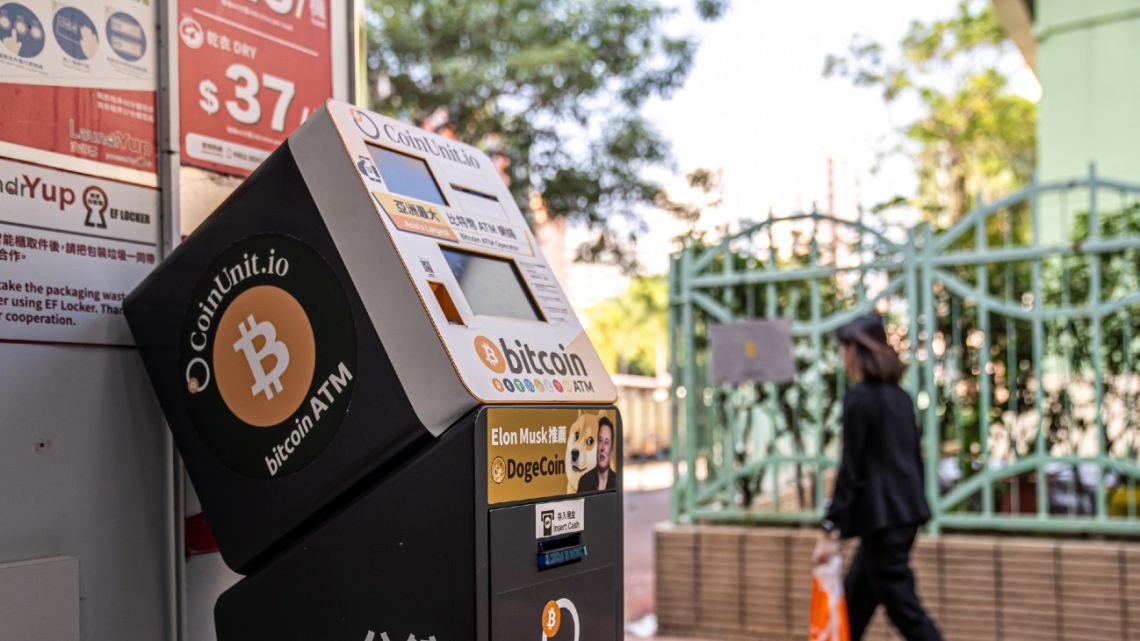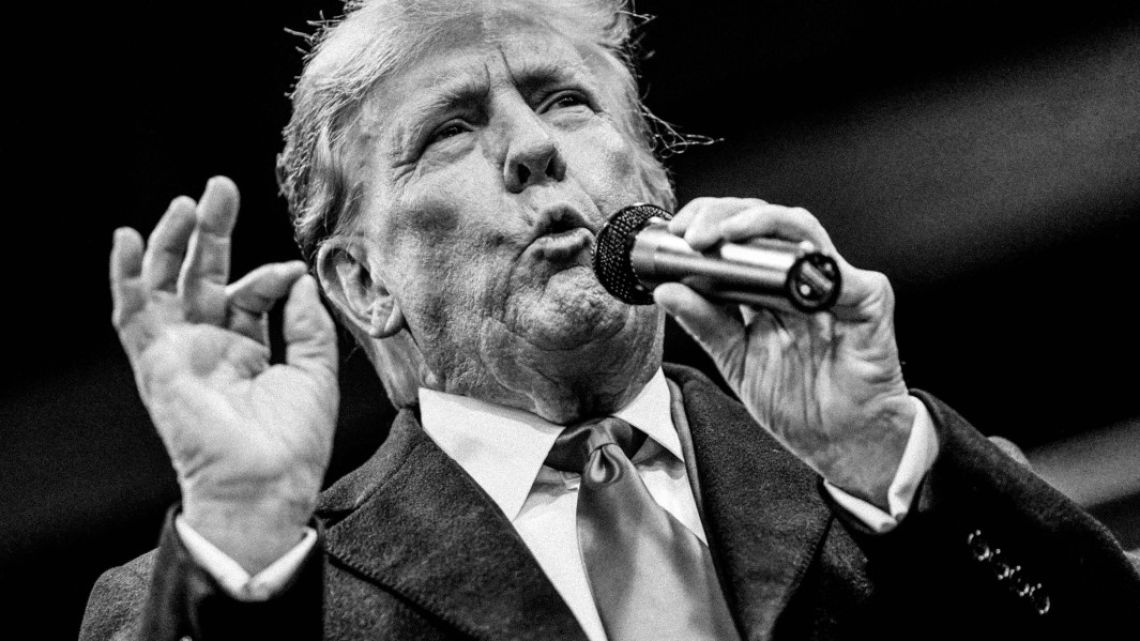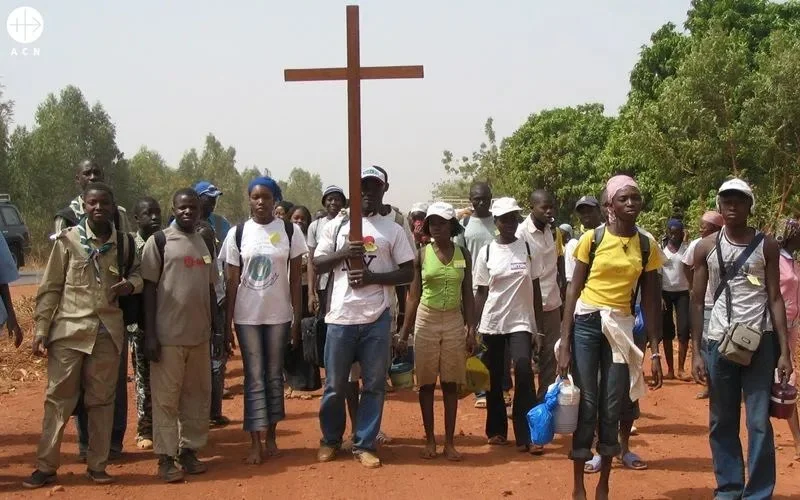São Paulo, Brazil — Since its attempt to join BRICS was vetoed by Brazil at the latest summit of the trading bloc in Kazan, Russia last week, Venezuela’s government has launched a series of provocations against its South American neighbor, including calling back its ambassador in Brasília on Wednesday.
So far, however, Venezuelan President Nicolás Maduro – who attended the summit last week – has not spoken out directly against his Brazilian counterpart, President Luiz Inácio Lula da Silva – who was unable to attend because of a recent injury, and sent his Foreign Minister Mauro Vieira instead.
“I prefer to wait for Lula, once he is well informed of events as head of state, to say what he has to say in due course,” said Maduro on Monday. He instead went on the attack against Brazil’s Foreign Ministry, saying, “It has always conspired against Venezuela. It is a foreign ministry closely linked to the US State Department, since the time of the coup d’état against João Goulart.”
Before Maduro’s comments, the Venezuelan government had already issued a statement signed by its Ministry of Foreign Affairs, calling Brazil’s move an “inexplicable aggression, reproducing the hatred and intolerance promoted by Western power centers.”
Venezuela’s desire to join BRICS
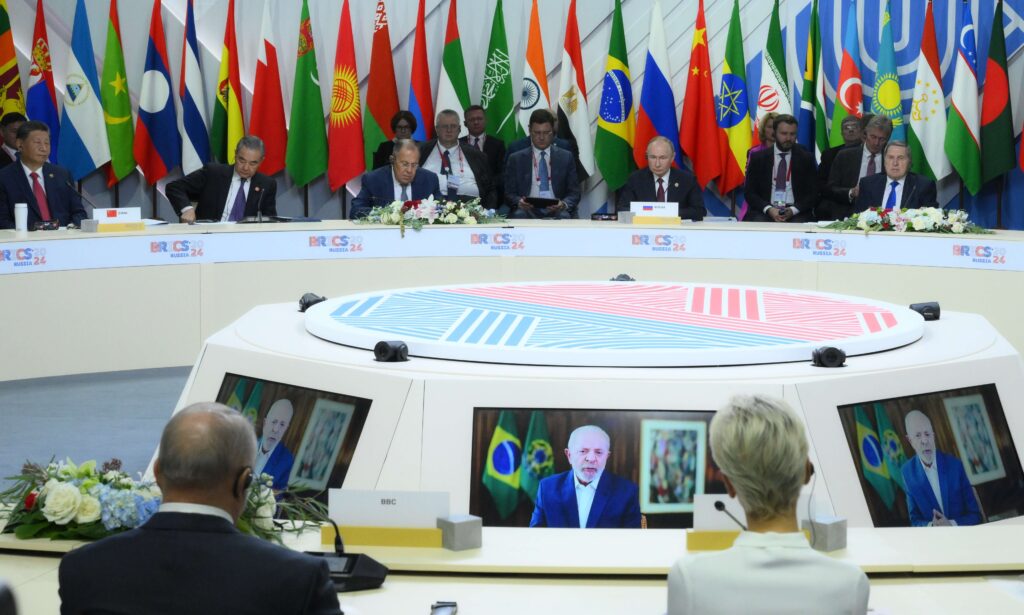 16th BRICS summit in Kazan
16th BRICS summit in Kazan (Sergey Bobylev / brics-russia2024.ru host photo agency)
Initially formed in 2006 by Brazil, Russia, India, and China, BRICS added South Africa in 2011, creating a trade bloc that unites some of the world’s largest emerging economies.
In January, Egypt, Ethiopia, Saudi Arabia, the United Arab Emirates, and Iran joined the bloc, which is perceived as a counter to Western economies, and is actively seeking to expand. Algeria, Belarus, Bolivia, Cuba, Indonesia, Kazakhstan, Malaysia, Nigeria, Thailand, Turkey, Uganda, Uzbekistan, and Vietnam are considered “partner states” but not members.
Facing mounting US sanctions, Maduro has pushed hard for Venezuela’s entry into the trade group, even traveling to Kazan for the BRICS summit and meeting with Russian President Vladimir Putin on its sidelines. He also addressed the plenary session and said, “The BRICS can count on Venezuela and all our revolutionary forces.”
Despite Maduro’s show of affection for the trade bloc, Brazil has effectively blocked its entry thus far.
Brazil’s decision stems from concerns over Venezuela’s lack of transparency In its July presidential elections, which saw Maduro re-elected in a widely disputed result.
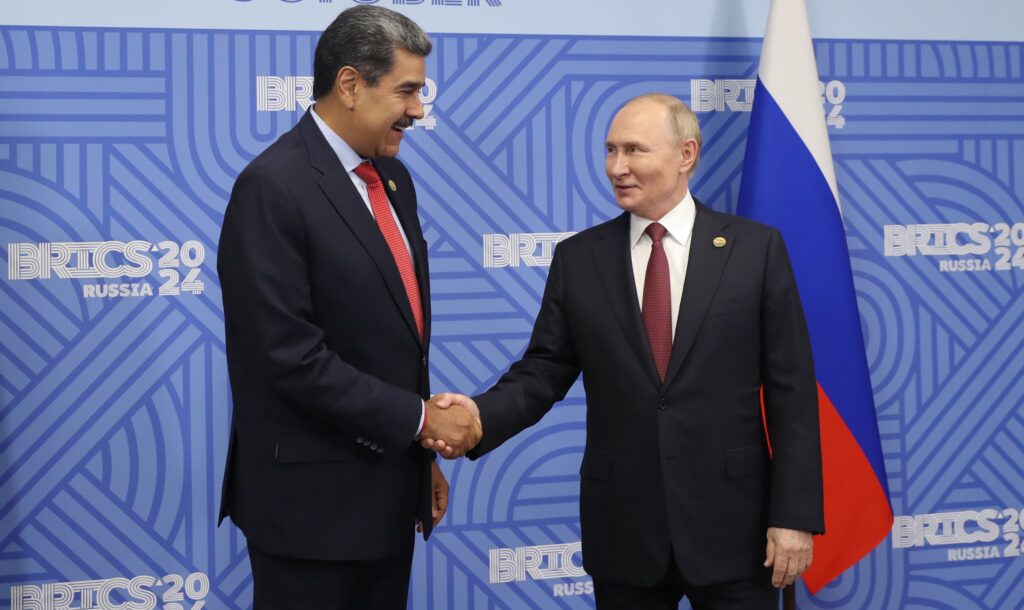 Presidents Maduro and Putin at the BRICS summit in Kazan
Presidents Maduro and Putin at the BRICS summit in Kazan(Anatoly Medved / brics-russia2024.ru host photo agency)
Brazil’s shift away from Maduro’s Venezuela
Under previous administrations, Brazil had mostly avoided questioning Venezuelan election outcomes. (Brazil’s former right-wing President Jair Bolsonaro was a frequent critic of Maduro’s, however, his administration did not coincide with a general election in Venezuela).
Once Maduro refused to turn over vote tabulations to certify election results, however, Brazil would join the US, the European Union, and several Latin American countries in refusing to recognize Maduro’s re-election.
Paulo Velasco, a political scientist and professor of International Relations at Rio de Janeiro State University, views Brazil’s demand for transparency as a critical turning point in the two nations’ relationship.
He points to both internal and external pressures which impacted the shift. Internationally, he sees the move as aligning Brazil more closely with the West. At home, the professor said that Lula’s government is trying to distance itself from Venezuela’s political crisis ahead of a potential 2026 re-election bid, while also signaling to Brazil’s centrist voters that his administration doesn’t condone electoral fraud.
 Professor Paulo Velasco
Professor Paulo Velasco“This government allows itself to criticize without theatrics, without severing ties or breaking relations, but it allows for tougher criticism,” Velasco told Brazil Reports. “It’s a nod to the political center in Brazil. Lula knows that to win in 2026, or to elect any successor, he will need the center’s support.”
The dispute over Venezuela’s recent election is further strained by what Brazil perceives as Venezuela’s violation of the Barbados Agreements.
Signed in October 2023 by Maduro and opposition leaders, the accords set out guidelines for a transparent election, with provisions for international observers, press freedom, and fair access to candidacy. Yet in March, the Venezuelan government blocked opposition candidate Corina Yoris from running, prompting Brazil’s Foreign Ministry to express concern over what it saw as a breach of the agreement. (Yoris replaced opposition leader Maria Corina Machado after the latter was disqualified by the Venezuelan government.)
“Brazil, by engaging with the Barbados accords, committed to monitoring Venezuela’s election closely, and when issues arose, it couldn’t simply look the other way as might have been the case in the past,” Velasco explained.
Historical Ties
The recent rift is notable as well given the historical ties between Lula’s and Maduro’s leftists political movements.
“There is a historical affinity between the Workers’ Party and Chavismo, dating back to the 1990s. When [Hugo] Chávez was elected in 1998 and took office in 1999, there was a natural sympathy from the Workers’ Party, and at times, what appeared to be a personal friendship between Lula and Chávez, despite their differences,” Velasco said.
During Lula’s two first terms (2003–2011) and Dilma Rousseff’s presidency (2011–2016), Brazil was a key ally for Venezuela in the region. Chávez, who died in 2013, held office from 1999 to 2013, making constitutional amendments and public referenda that extended his rule to 14 years – moves which Brazil, citing respect for national sovereignty, never opposed.
 Lula welcomes Maduro on a visit to Brazil in May 2023
Lula welcomes Maduro on a visit to Brazil in May 2023 (Antônio Cruz / Agência Brasil)
But relations deteriorated in 2018 when Brazil, then led by the conservative President Michel Temer, declined to accept Maduro’s re-election. The situation further strained under Jair Bolsonaro, the far-right president who assumed office in 2019 and promptly recognized Venezuelan opposition leader Juan Guaidó as Venezuela’s legitimate president.
When Lula returned to power last year, hopes arose for a renewal of the countries’ prior camaraderie. Although Maduro missed Lula’s January 2023 inauguration, he visited Brazil in May last year, receiving full state honors. But relations soon soured.
According to Velasco, the irregularities in Venezuela’s recent election are too significant for even longtime allies like Brazil to overlook. “In the past, suspicions of fraud were just that, suspicions. Now it seems more consistent as if there is a profoundly flawed electoral process,” he said.
Despite international condemnation and distancing from Brazil, Velasco believes a shift in Venezuelan power remains unlikely in the near future. Maduro retains support from key allies like Russia and China, and while Chavismo’s popularity among Venezuelans has waned, it is bolstered by robust military backing.
“Maduro feels more secure today than he did six years ago during his first re-election,” Velasco commented. “He has deeper support from Russia and China and has gained new allies like Turkey and Iran. This makes him less reliant on Brazil or South American neighbors. Maduro’s power isn’t sustained by his Chavista supporters, who have dwindled over time, but by the military.”
Looking to the future of Brazil-Venezuela relations, Velasco offered a measured outlook. “I don’t believe Brazil seeks a diplomatic rupture unless Venezuela persists with provocations. For Brazil, this stance is enough to deliver the message. We don’t need to go further.”

 By Latin America Reports | Created at 2024-11-01 16:47:04 | Updated at 2024-11-06 15:37:38
6 days ago
By Latin America Reports | Created at 2024-11-01 16:47:04 | Updated at 2024-11-06 15:37:38
6 days ago
